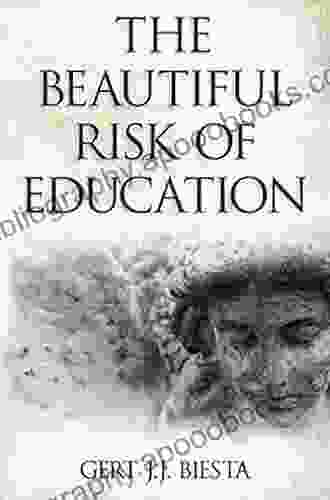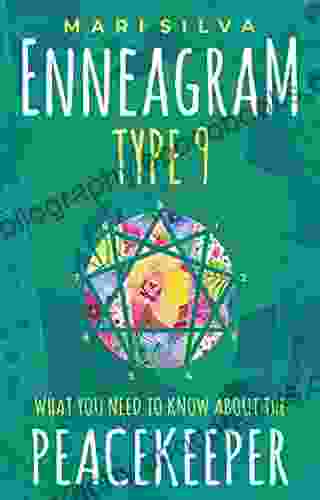Education Philosophy and Culture: Unlocking the Transformative Power of Education

Education is not merely a process of imparting knowledge and skills; it is a dynamic and multifaceted endeavor that profoundly shapes our world and the individuals within it. To fully grasp the significance of education, we must delve into its philosophical underpinnings and the cultural context that influences it. This article will explore the intricate tapestry of education philosophy and culture, highlighting their intertwined nature and the profound impact they have on our educational practices.
Education Philosophy: Laying the Foundation
Education philosophy encompasses a set of beliefs and principles that guide our understanding of the purpose, nature, and value of education. It provides a framework for educators to shape their pedagogical approaches, determine curriculum content, and create learning environments that foster the holistic development of students.
4.2 out of 5
| Language | : | English |
| File size | : | 1149 KB |
| Text-to-Speech | : | Enabled |
| Screen Reader | : | Supported |
| Enhanced typesetting | : | Enabled |
| Word Wise | : | Enabled |
| Print length | : | 170 pages |
There are numerous philosophical perspectives on education, each with its unique emphasis and implications. Some prominent philosophies include:
- Essentialism: Focuses on transmitting essential knowledge and skills deemed necessary for a well-rounded education.
- Progressivism: Emphasizes child-centered learning, experiential education, and the development of critical thinking skills.
- Pragmatism: Views education as a practical tool for solving problems and adapting to changing societal needs.
li>Existentialism: Explores the subjective nature of knowledge and emphasizes the importance of individual freedom and choice in education.
The choice of education philosophy has a direct impact on the design and implementation of educational systems. Essentialist philosophies may lead to more structured and content-driven curricula, while progressive philosophies encourage student autonomy and inquiry-based learning. Existentialist perspectives may foster self-reflection and personal growth, while pragmatic approaches focus on developing skills that are directly applicable to the real world.
Culture's Influence: Shaping Educational Experiences
Culture is an integral part of education, influencing the values, beliefs, and practices that shape educational institutions and the learning experiences of students. Culture affects:
- Curriculum Content: The selection of subjects, topics, and materials taught in schools is influenced by cultural norms and values.
- Teaching Methods: Cultural factors can influence the way teachers interact with students, the preferred teaching styles, and the assessment methods used.
- Student Expectations: Culture shapes students' expectations about their role in the learning process, their relationships with teachers, and the importance they place on education.
Understanding the cultural context of education is essential for educators to create inclusive and effective learning environments. By acknowledging and respecting cultural differences, educators can foster a sense of belonging for all students, empowering them to reach their full potential.
Intertwined and Interdependent
Education philosophy and culture are inextricably linked and mutually influential. Education philosophy provides a theoretical framework that guides educational practices, while culture shapes the practical implementation of these practices.
A progressive education philosophy, for example, emphasizes experiential learning and student autonomy. In a culture that values individualism and self-expression, this philosophy can be more easily implemented. Conversely, in a culture that emphasizes conformity and rote memorization, the implementation of a progressive philosophy may face challenges.
Transformative Power of Education
The transformative power of education lies in its ability to shape both individuals and societies. Education empowers individuals with knowledge, skills, and critical thinking abilities, enabling them to make informed decisions, participate fully in society, and lead fulfilling lives.
Education also plays a vital role in social progress and economic development. By fostering creativity, innovation, and a sense of global citizenship, education contributes to the creation of a more just, equitable, and sustainable world.
Education philosophy and culture are inseparable concepts that shape the purpose, practices, and impact of education. By understanding the philosophical underpinnings of education and the cultural context in which it takes place, educators can design and implement educational systems that are aligned with the needs and aspirations of both individuals and society.
Education is not merely a transmission of knowledge and skills; it is a transformative process that empowers individuals and shapes the future of our world. By embracing the transformative power of education, we can create a more just, equitable, and sustainable society for all.
Additional Resources
- Education Philosophy and Culture: A Critical Analysis
- The Relationship Between Culture and Education
- Education, Philosophy, and Culture: A Complex Relationship
4.2 out of 5
| Language | : | English |
| File size | : | 1149 KB |
| Text-to-Speech | : | Enabled |
| Screen Reader | : | Supported |
| Enhanced typesetting | : | Enabled |
| Word Wise | : | Enabled |
| Print length | : | 170 pages |
Do you want to contribute by writing guest posts on this blog?
Please contact us and send us a resume of previous articles that you have written.
 Book
Book Novel
Novel Page
Page Chapter
Chapter Text
Text Story
Story Genre
Genre Reader
Reader Library
Library Paperback
Paperback E-book
E-book Magazine
Magazine Newspaper
Newspaper Paragraph
Paragraph Sentence
Sentence Bookmark
Bookmark Shelf
Shelf Glossary
Glossary Bibliography
Bibliography Foreword
Foreword Preface
Preface Synopsis
Synopsis Annotation
Annotation Footnote
Footnote Manuscript
Manuscript Scroll
Scroll Codex
Codex Tome
Tome Bestseller
Bestseller Classics
Classics Library card
Library card Narrative
Narrative Biography
Biography Autobiography
Autobiography Memoir
Memoir Reference
Reference Encyclopedia
Encyclopedia Thomas A Adler
Thomas A Adler Lou J Berger
Lou J Berger Lamia Karim
Lamia Karim Hannibal Tabu
Hannibal Tabu Dawn Bates
Dawn Bates Jacqueline Kimball
Jacqueline Kimball Dawn Bikowski
Dawn Bikowski Karen Meyers
Karen Meyers Carrie Chapman Catt
Carrie Chapman Catt Vladimir Bartol
Vladimir Bartol G S Kirk
G S Kirk Rosie Avila
Rosie Avila Zach Abraham
Zach Abraham Jim Cusack
Jim Cusack Katherine Garbera
Katherine Garbera Gavin Booth
Gavin Booth Randy Poe
Randy Poe Leland Ware
Leland Ware Jon Liebman
Jon Liebman Richard J Lipton
Richard J Lipton
Light bulbAdvertise smarter! Our strategic ad space ensures maximum exposure. Reserve your spot today!
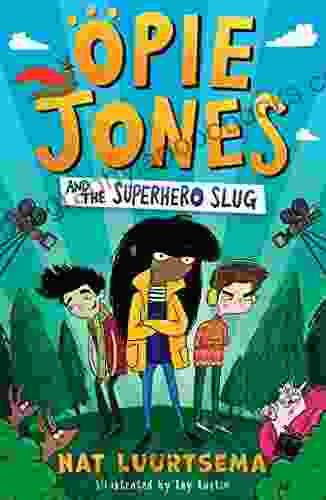
 Chadwick PowellHilariously Bonkers Superhero With An Animal Twist - Perfect For Fans Of...
Chadwick PowellHilariously Bonkers Superhero With An Animal Twist - Perfect For Fans Of...
 Brady MitchellInside The World of the Insane Clown Posse and America's Weirdest Music Scene
Brady MitchellInside The World of the Insane Clown Posse and America's Weirdest Music Scene Corey HayesFollow ·9.5k
Corey HayesFollow ·9.5k Cooper BellFollow ·11.9k
Cooper BellFollow ·11.9k Junichiro TanizakiFollow ·6.4k
Junichiro TanizakiFollow ·6.4k Jesus MitchellFollow ·16.4k
Jesus MitchellFollow ·16.4k Nathaniel HawthorneFollow ·2k
Nathaniel HawthorneFollow ·2k Forrest BlairFollow ·18.6k
Forrest BlairFollow ·18.6k George MartinFollow ·8.4k
George MartinFollow ·8.4k Drew BellFollow ·4.1k
Drew BellFollow ·4.1k
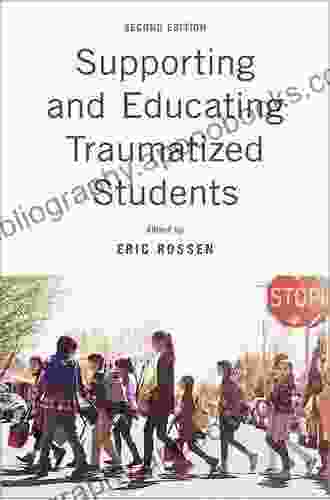
 Finn Cox
Finn CoxEmpowering School-Based Professionals: A Comprehensive...
: The Role of School-Based Professionals in...

 F. Scott Fitzgerald
F. Scott FitzgeraldThe Santa Fe Trail Twentieth Century Excursion: A...
Get ready to embark on an...
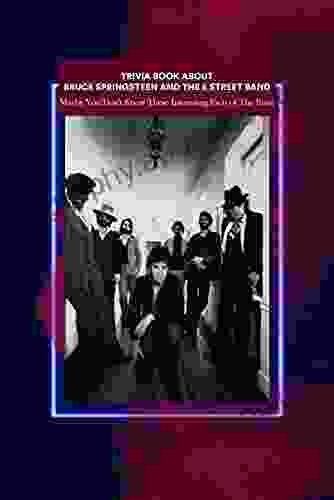
 Kendall Ward
Kendall WardThe Ultimate Trivia Guide to Bruce Springsteen and the...
Bruce Springsteen...

 Jedidiah Hayes
Jedidiah HayesThe Trouble with Lacy Brown: Texas Matchmakers - A...
Prepare to be swept...
4.2 out of 5
| Language | : | English |
| File size | : | 1149 KB |
| Text-to-Speech | : | Enabled |
| Screen Reader | : | Supported |
| Enhanced typesetting | : | Enabled |
| Word Wise | : | Enabled |
| Print length | : | 170 pages |


